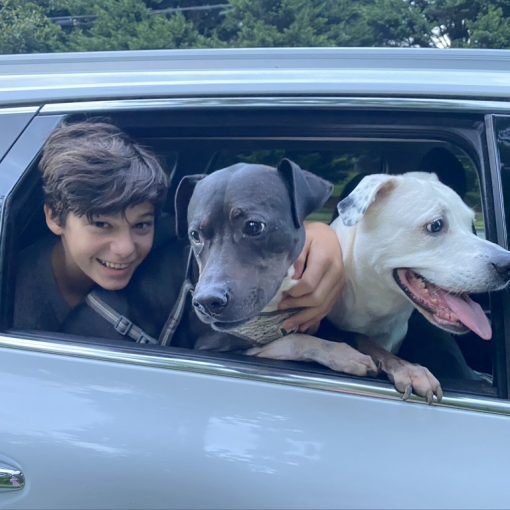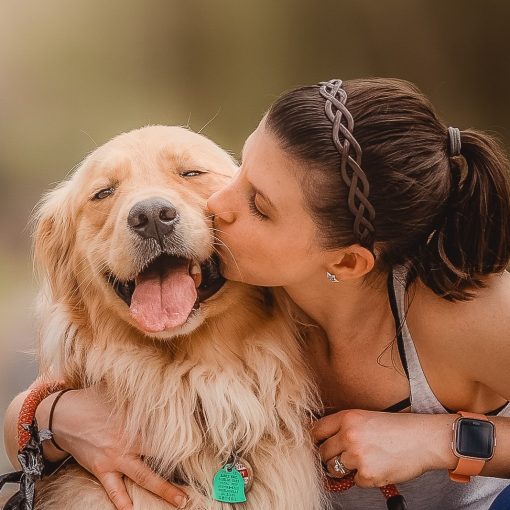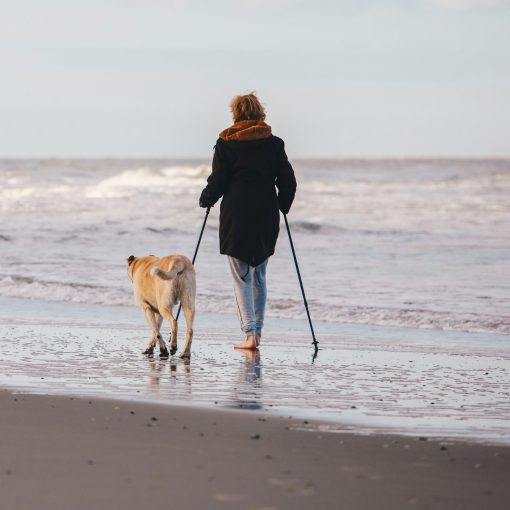National Dog Day, August 26th, came and went without much fanfare. After all, a lot is happening today – much more than in 2004. That’s when National Dog Day became recognized as a worldwide holiday. High gas prices, threatened food shortages, and pandemics – who has the time or desire to celebrate dogs?
But wait, this might be the perfect circumstance for such diversion, even if momentary, to the topic of dogs.
This isn’t the first time the human population has gone through trying times. Humankind has experienced hardship before. And so have dogs. At least for the last 10,000 years, dogs have been at our side through thick and thin, helping as they could. (Or maybe it’s been 30,000-45,00 years, as some archeologists claim.) There is so much we don’t know about the early history of dogs. But there is enough known to make an interesting story.
Dogs? How Did They Get Involved?
Let’s start with some recorded historical information, leaving the DNA and osteology (bone study) explanations to others. Before there were dogs, there were wolves. They were gray wolves, and they formed a partnership with humans. We don’t know why, and we don’t exactly know when. We don’t even know if the wolves approached the humans or vice versa. But we know as this partnership was forged, some wolves became domesticated. These more domesticated wolves were bred into what we now know as dogs. The evolution of breeding was fueled by human survival needs and, later, indulgence. (Look at how many unusual breeds there are.)
At some point in the stone age, wolves presumably transitioned from hunting humans to helping humans hunt. Ancient pictures of humans with wolves tell little but leave much to speculation and imagination. One theory is that the wolves (evolving into dogs), with their heightened senses, were able to alert the humans to tribal foes (Neanderthals perhaps) and keep them out of harm’s way. They also likely helped the humans hunt game, locating prey with their keen sense of smell.
According to Science News, about 10,000 years ago (or more or less), dogs helped humans survive the Artic and other freezing terrains. Dogs pulled sleds, allowing for the transport of people, food, and goods. And undoubtedly, those furry coats helped the bared-skin humans stay warm.
Around the same time (or later- but as agriculture replaced hunting as a way to eat), humans honed dog skills for farming. Dogs guarded the sheep and cattle and protected the crops from predators. Farming required specific skills, necessitating new breeds of dogs.
Through the centuries and up to the present, dogs have maintained their roles as herders and hunting companions. Additionally, for centuries dogs have famously been the pets and hunting assistants for the royals. Dogs are reliable assets for police canine units.
And dogs have been the most under-reported heroes of the military.
Canine soldiers have accompanied human soldiers in battle since Egyptian times when, according to history, dogs viciously attacked Egyptian enemies.
During the Middle Ages, dogs wore armored suits to accompany the likewise armored knights to the battlefield. And dogs helped the Greeks and Romans in Battle.
During the Civil war, dogs foraged food for the soldiers, functioned as messengers, and accompanied spies. Generals recognized dogs as needed companions during the bloody war.
During WW I, dogs had many roles. They were astute guards, accomplished messengers, and even trained as medics’ assistants – they could hunt out the wounded soldiers and alert medics. They killed the rats in the trenches.
In World War II, dogs were capable messengers and sentries for the US army. So important were dogs that the army organized them into fifteen Quartermaster War dog platoons.
One of these dogs, Chips, earned a Purple Heart and Silver Star for helping save many soldiers’ lives.
And in every other unfortunate circumstance of war, dogs have been sentries, messengers, companions, and more. The role of dogs in combat is a fascinating historical read.
In reviewing all of this, it’s easy to determine why dogs have earned and continue to earn the title of “Man’s Best Friend .”
But there is even more to the human and dog story. An internet search on “How do dogs help people?” presents a whole new dimension to the aid that dogs are providing humans. And, as has been the case historically, their service aligns with human situations extant on this planet. Here are some examples: ” 5 Ways Dogs help Humans Be Healthier and Happier”, “Why Dogs Are Good for Our Health,” “How dogs contribute to your health and Happiness” and so on, for page after page of search.
Dogs certainly deserve their own holiday.
As a belated recognition, gives yours an extra treat. If you don’t have a dog, think about adopting a rescue.
And if you feel your dog is an emotional support dog, call us. We’re here to help you practice your rights (along with the rights of your dog).
Call




